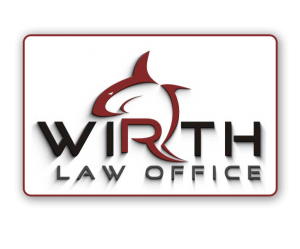You Need to Show That You Are a Member of an Indian Tribe
Video Transcribed: Are You an “Indian” for the Purpose of the McGirt? I’m Oklahoma attorney James Wirth and we’re about to talk about how to prove you are an Indian for the purposes of denying state court jurisdiction over a criminal charge against you.
All right. So this deals with the new McGirt v Oklahoma, it came out July 9th of 2020 that says that the Muscogee Creek Nation Reservation was never disbanded through the creation of the state of Oklahoma, which that precedent then applied to the five civilized tribes means that most of northeast Oklahoma, about half the state, is actually Indian reservation land.
And on those lands, the state lacks jurisdiction to charge an Indian for crimes that occurred in those locations. So it becomes relevant what is considered to be an Indian under the law and that’s the language that the laws use, is the term Indian.
So what does that mean? Well, first off you need to be a member or be able to show that you are recognized as a member of a tribe by an Indian tribe or by the federal government.
And second, you also have to show some degree of Indian blood, and that’s based on the test in the case of Prentiss, back from 2001, and it determined that both of those factors have to be met.
If the other side of the state can prove that one of those is not met, then you’re not an Indian as it’s described in the Act and the state does have the authority to prosecute you for offenses.
All right. So how does one make that determination? All right. Well, it’s actually based on totality of the circumstances test, which means that there’s no set evidence that the court has to have, it can be made based on a lot of different factors.
 So, obviously, the best evidence is going to be a CBID card. So that’s the Certificate of Degree of Indian Blood card, that’s an official federal government document or card that lists out the degree of Indian blood that you have.
So, obviously, the best evidence is going to be a CBID card. So that’s the Certificate of Degree of Indian Blood card, that’s an official federal government document or card that lists out the degree of Indian blood that you have.
So that, along with tribal membership, that’s excellent evidence that you’re an Indian under the Act and can’t be prosecuted by the state for crimes occurring in most of northeast Oklahoma.
But that’s not the only thing, there’s other evidence that could be utilized based on a totality of the evidence standard.
So what you could do is look at your family lineage. If you can prove your family lineage going back to the early 1900 to show that you had a member of your direct lineal descendant that was on the Dawes Roll, then that’ll prove that you have Indian blood and then you just need to show that you’re a member of a tribe.
But if you can prove those, that’s what it takes. It brings up an interesting issue though because there are certain tribal members that may not have Indian blood and those primarily deal with the Freedman.
So the five civilized tribes, which is what’s most at issue here as far as for the reservation, in treaties in 1866, after the Civil War, were required to have their slaves be members of the tribe and that has happened to some degree and not to some degree for various tribes and it’s been fought over, and continues to be fought over now, as far as tribal membership.
But many of those people may be Freedman and required to be a member of the tribe but they may not have Indian blood. So how are they treated?
Well, based on the best information that we have right now, based on the precedent that we have in Prentiss, and apply that with what we have in McGirt, it appears as though they may not be considered Indian for the purposes of preventing the state, or taking jurisdiction away from the state, for criminal charges.
But this is all very new and it’s playing out in a way, way bigger than it has ever before so there’s likely to be new decisions with more specificity regarding these issues.
If this is something that you’re facing and you have questions about, need representation at looking at handling a current criminal charge, or perhaps vacating a charge from years ago, or getting an expungement, you’re probably going to want to talk to an attorney about your specific circumstances. So, if you want to talk to somebody in my office, go to makelaweasy.com.










